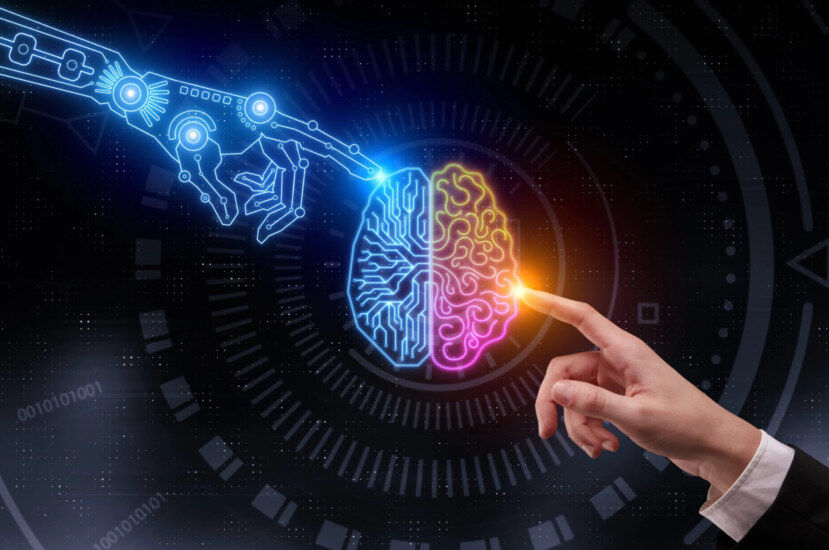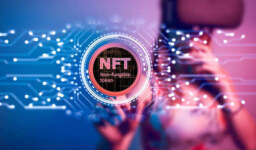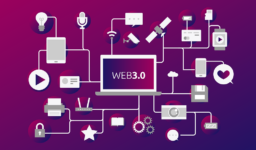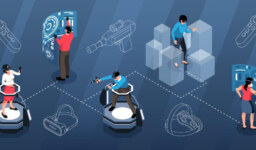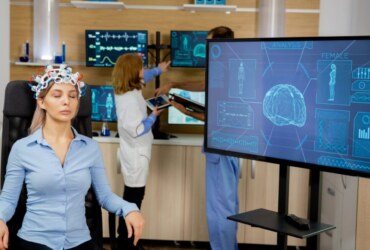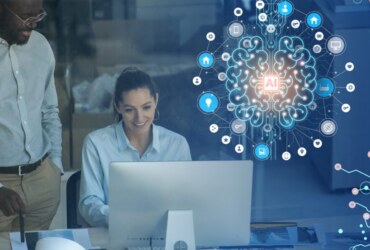Unquestionably, artificial intelligence (AI) is a ground-breaking area of computer science that is poised to dominate several new technologies, including big data, robotics, and the internet of things. In the upcoming years, it will continue to be a technical innovator. AI has gone from being science fiction to reality in a matter of years. In the real world as much as in science fiction films, intelligent machines assist humans. We currently live in a world of artificial intelligence, which was only a story for a while.
Whether we are aware of it or not, artificial intelligence technology is being used in our daily lives and has already ingrained itself into our culture. Everyone now uses AI in their daily lives, from chatbots to Alexa and Siri. Rapid advancement and evolution are taking place in this field of technology. But it wasn’t as simple as it seemed to us. To get AI to this point, many years of arduous labor and contributions from numerous people were required. Being such cutting-edge technology, AI also deals with a lot of debates concerning its future and effects on people. It could be risky, but it’s also a fantastic opportunity. AI will be used to improve cyber operations on the offensive and defensive sides. In addition, new cyberattack techniques will be developed to exploit specific AI technology weaknesses.
In this topic, it will be discussed whether AI is a great technology or a danger to people, as well as how it will affect human life in the future.
Artificial Intelligence (AI) at Present
Let’s first define artificial intelligence and examine its current state before delving deeper into the topic in the future. The ability of machines or computer-controlled robots to carry out actions associated with intelligence is what is meant by the definition of artificial intelligence (AI). AI is therefore the study of computers to create intelligent devices that can imitate human behavior.
Three categories of AI can be distinguished based on their capabilities, including:
- Narrow AI: It has the intelligence to carry out specific tasks. Currently, AI is in the narrow AI stage.
- Artificial General Intelligence: sometimes known as AGI, is the term used to describe robots that exhibit human-like intelligence.
- Super AI: Super AI is a term used to describe self-aware AI that is more intelligent than humans. At this point, machines are capable of performing every cognitively capable human task.
The type of AI that exists now, referred to as Narrow AI or Weak AI, can only carry out specific jobs. Take autonomous vehicles, speech recognition, etc. as examples.
Myths about Advanced Artificial Intelligence
1. Superintelligence by the year 2100 is not possible.
The truth is that we can’t now determine whether superintelligence exists. Nothing is confirmed, therefore it could happen in a few decades, a few centuries, or it could be never. In several surveys, the question of how long they believe it will take for human-scale AI to become a reality with at least a 50% likelihood has been posed to AI experts. All of these studies come to the same conclusion: We don’t know because the top specialists in the world disagree. For instance, the (average) response to this question in a survey of AI experts at the 2015 Puerto Rico AI conference was by 2045, however, several experts gave estimates of hundreds or even more years.
2. I will replace all human jobs.
It is undeniably true that the emergence of AI and automation has the potential to dramatically disrupt the labor market, and in many cases, it is already doing so. It would be greatly oversimplified to think of this as a simple transfer of labor from humans to machines.
People worry about losing their jobs as AI continues to advance because it has revolutionized industries across all sectors. But in truth, AI has increased the number of jobs and possibilities available to individuals across all industries. Every machine needs a person to run it. Although AI has replaced certain occupations, it still creates more jobs for people.
3. Super-intelligent computers will become better than humans at doing anything we can do
As was said above, there are three categories of AI: weak AI, which is capable of doing certain tasks like weather prediction. General AI; Able to carry out a task as well as a human, Super AI is AI that is capable of outperforming humans at any task.
Currently, we are employing weak AI to carry out specific tasks and enhance its performance. However, research is ongoing and general AI and super AI are still in the early stages of development. They will have the ability to do a variety of activities on par with human intelligence. But it will take years or even centuries to construct an AI, and its applications are still decades or even centuries away. Furthermore, it is now impossible to anticipate how effective such AI will be or whether it will outperform humans.
4. AI does not require human intervention.
People mistakenly believe that AI can function without any human involvement. But the truth is that AI is not yet sufficiently advanced to make independent decisions. To pre-process the data, create the models, create a training dataset, identify the bias and variance and remove them, etc., a machine learning engineer or specialist is needed. Every AI model still depends on people. Once the model is prepared, nevertheless, it automatically enhances its performance as a result of the experiences.
How can Artificial Intelligence be risky?
The majority of scientists concur that super AI cannot display human emotions like love, hate, or kindness. Furthermore, we shouldn’t anticipate an AI to act maliciously kind or vengefully. Additionally, if we consider AI to be risky, there are primarily two possibilities:
1. AI is programmed to do something destructive:
Systems with artificial intelligence that are programmed to kill are referred to as autonomous weapons. These weapons have the potential to easily result in massive casualties in the wrong hands. Furthermore, an AI arms race can unintentionally culminate in an AI conflict with many victims. These weapons would be very hard to “switch off,” so humans could lose control of such a situation. This would prevent being displeased with the opponent. This risk exists even with limited AI, but it increases as AI intelligence and autonomy levels rise.
2. Misalignment between our goals and machines:
The second prospect for AI as a risky technology is that it could have catastrophic outcomes if it is programmed to perform something well. For instance, Let’s say we instruct the autonomous vehicle to “transport us to our destination as quickly as feasible.” The device will promptly carry out our commands. Until we make it clear that traffic laws must also be respected and that human life is valuable, it can be harmful to human lives. It may violate traffic laws or cause an accident, neither of which was actually what we wanted, but it complied with our requests. So, if super-intelligent machines ask to complete a task that doesn’t comply with our expectations, they could be destructive.
Future impact of AI in different sectors
Healthcare:
AI will be essential in the healthcare industry for making quicker and more accurate diagnoses of illnesses. The use of AI will speed up and reduce the cost of finding new drugs. Additionally, it will increase patient involvement in their care and make booking appointments and paying bills easier and less error-prone. Apart from these advantageous applications, the biggest barrier for AI in healthcare is getting it accepted into routine clinical procedures.
Cyber security:
Without a doubt, each organization prioritizes cyber security to guarantee data protection. According to various projections, cyber security using AI will evolve in the ways listed below:
- Security incidents will be tracked using AI techniques.
- locating the source of cyberattacks using NLP.
- RPA bots are used to automate processes and tasks that follow rules.
Being a terrific technology, it can, however, also be utilized by attackers as a threat. By employing automated attacks that may be impossible to prevent, they can use AI unethically.
Transportation:
The transportation industry has not yet built a completely autonomous car, although researchers are working in this area. In the cockpit, artificial intelligence (AI) and machine learning are being used to lessen the workload, manage pilot stress and fatigue, and boost on-time performance. The use of AI in transportation has several obstacles, particularly in locations where there is public transit. Over-reliance on automatic and autonomous technologies is quite dangerous.
E-commerce:
Shortly, artificial intelligence will be crucial to the e-commerce industry. It will favor every facet of the e-commerce industry, from user experience to product marketing and delivery. Future developments in e-commerce include the usage of chatbots, automated warehousing and inventory systems, and shopper customization.
Employment:
Nowadays, thanks to the development of artificial intelligence, finding a job is straightforward for both job seekers and companies. Artificial intelligence (AI) is already being employed in the job market, where tight regulations and algorithms automatically reject a CV from an applicant if it does not meet the requirements of the organization. In the future, it is hoped that most AI-enabled applications would control the hiring process, from marking written interviews to conducting phone interviews.
Various AI programs, like Rezi, Jobseeker, etc., are assisting job searchers in creating outstanding resumes and locating the finest positions that match their skills.
Aside from the aforementioned industries, AI has a bright future in manufacturing, banking & finance, entertainment, etc.

